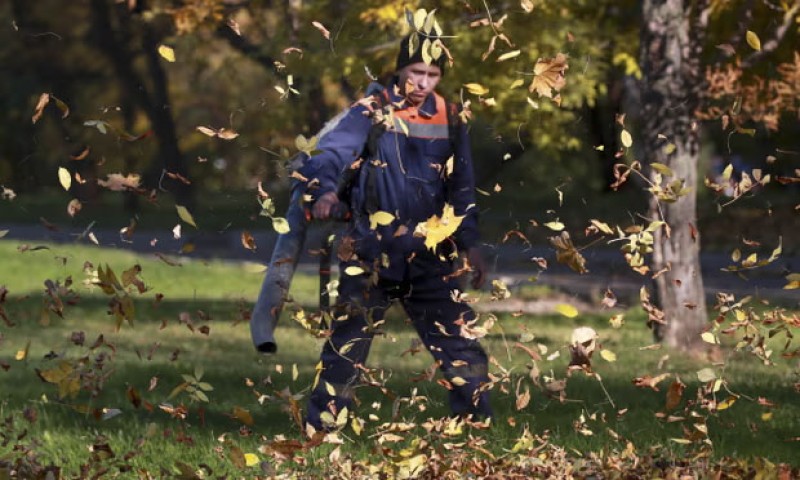Lovers of peace and opponents of air pollution can now breathe easy as Washington offers rebates on electric tools
A roaring and often harmful cacophony that has long afflicted Washington DC has finally been silenced. Not the roar of politicians sounding off, alas, but the use (and sale) of gasoline-powered leaf blowers, banned since New Year’s Day.
Anyone using the blowers, which have been blamed for ear-splitting noise and a stew of air pollution, risks a fine of up to $500.
People who still want to rearrange the natural fall of leaves from trees have been offered rebates for quieter electric blowers.
The push to ban gas leaf blowers was led by local resident James Fallows, a former speechwriter for Jimmy Carter who has blamed the anti-social implements for producing “the secondhand smoke of this era”.
It is just the latest crackdown on leaf blower use across the US.
Last year, Gavin Newsom, governor of California, signed a law prohibiting gasoline-powered lawn equipment, including leaf blowers and lawnmowers, from 2024. More than 100 cities in various states have already banned gas leaf blowers, with Dallas and Portland the latest major urban areas to mull new restrictions.
The use of gas-powered leaf blowers is deleterious, opponents argue, due to their toxic emissions and ruination of neighborhood harmony. The blowers typically use two-stroke engines, an outmoded design that can produce up to 100 decibels of low-frequency noise, around the same as a plane taking off. This has led to concerns regarding hearing loss and tinnitus for users.
The inefficiency of such engines also causes enormous levels of air pollution: a 2011 study found that just 30 minutes of using a leaf blower in the yard can emit the same amount of hydrocarbons as driving a pickup truck from Texas to Alaska.
Michael Leamy, an expert in mechanical engineering at Georgia Tech, said the amount of air pollution from such a relatively small device was “astounding”.
“Homeowners will use them occasionally but mostly we are talking about people from lower socio-economic backgrounds working in landscaping who are exposed to these pollutants, which are very harmful to human health,” Leamy said.
“These are very dirty, crude engines compared to the engine you will find in a modern car. The government should really step in to protect the workers dealing day in, day out with the air pollution and hearing loss caused by these leaf blowers.”
Regulators in Washington DC sent out notices to lawn and building maintenance companies last summer, warning of the upcoming change and pointing out that residents are able to file complaints online, along with photographic or video evidence, if they see gas leaf blowers used.
The change will require a major shift for most landscapers, said Nancy Sainburg, founder of the Enchanted Garden landscape company, which operates in Washington.
“Hardly anyone is using electric leaf blowers,” she said, “and I have no idea what enforcement will be like, will people rat out their own neighbors?
“I mean it’s DC, so probably.”
Sainburg switched her own workforce to electric blowers five years ago, after, she said, becoming fed up with the smell of gasoline on her clothes and company trucks.
“The electric ones are just as powerful as gas blowers, you charge them overnight and just go for it,” she said. “My crew doesn’t get sick like they used to, they don’t get respiratory issues like they used to, they love it.
“These blowers don’t make the big stupid noise of the gas ones, it’s more like a vacuum cleaner noise. I think they are great.”
https://www.theguardian.com/us-news/2022/jan/05/gas-leaf-blowers-banned-washington-dc




